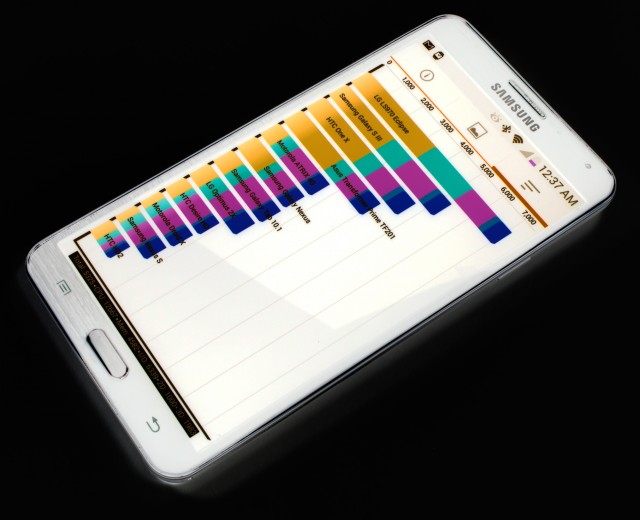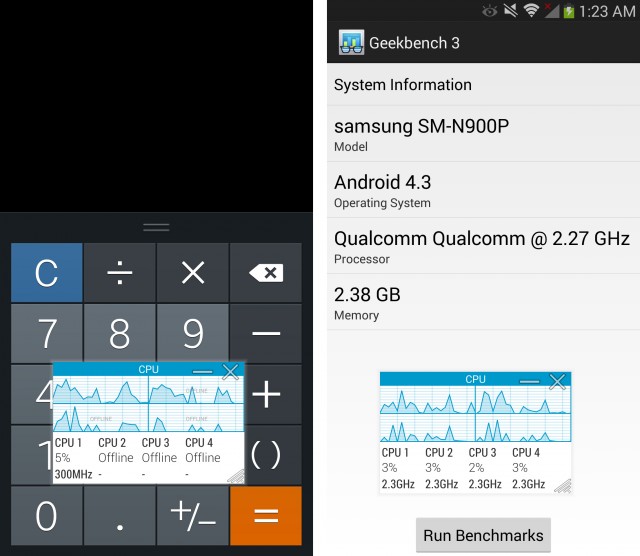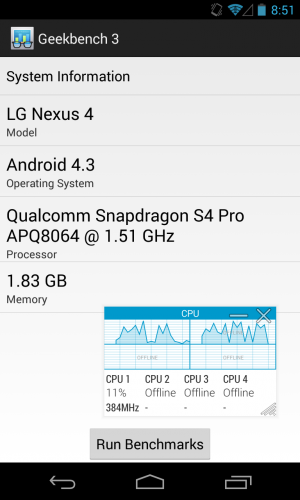An in depth investigation performed by Ars Technica has revealed that Samsung appears to be artificially boosting their Galaxy Note 3’s benchmark scores using a high-power CPU mode that only kicks in when the device runs popular benchmarking apps. The investigation was trigged after Ars Technica compared Samsung’s scores with the similarly specced LG G2.

Testing showed that the Note 3’s boosted ‘benchmark mode’ is triggered by the package names of the most popular benchmarking apps. The team at Ars Technica disassembled some of these apps, changed the package name and reassembled them before booting them up on the device. This meant that they could run the app without the CPU knowing it was a benchmarking one.

In a multicore test performed through popular benchmarking app Geekbench, the ‘benchmark mode’ gave the Note 3 a 20% boost over its ‘natural’ score. With this mode turned off, however, the device dropped down to the same levels as the LG G2, which is what Ars Technica originally expected.

The team also found a hard-coded list of packages that are affected by the special CPU boosting mode. After a lot of digging through the Note 3’s code, Ars Technica found that “this function is used exclusively for benchmarks”. The ironic thing is, even with the booster disabled, the Note 3 still comes out faster than the LG G2.
Whilst benchmarks can be a good way to determine a phone or tablet’s general performance, this is only true if they are treated the same as any other app.
Image Source: Ars Technica